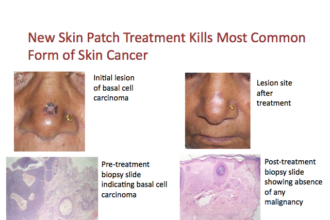 Greetings from Southern California as I visit family in the U.S. Along the way, I’ve spent some time on the bikes in hotel gyms and have had the chance to watch American television.
Greetings from Southern California as I visit family in the U.S. Along the way, I’ve spent some time on the bikes in hotel gyms and have had the chance to watch American television.
 Greetings from Southern California as I visit family in the U.S. Along the way, I’ve spent some time on the bikes in hotel gyms and have had the chance to watch American television. And you can’t miss the flood of ads for, now, not only prescription medicines but also even for hip and knee replacement medical devices!
Greetings from Southern California as I visit family in the U.S. Along the way, I’ve spent some time on the bikes in hotel gyms and have had the chance to watch American television. And you can’t miss the flood of ads for, now, not only prescription medicines but also even for hip and knee replacement medical devices!
The direct-to-consumer train from the big agencies on Madison Avenue in New York is running ever faster these days – and they tell a wonderfully slick, creative, and compelling story about the newest drugs and medical products. The goal, of course, is to have you rush right out to your doctor and ask them to make sure you get that product because “it’s right for you!” My warning is that feeling better with a chronic condition, now including a “chronic cancer,” is not so simple, and I am sure most doctors shake their heads as they see these ads. In this age of personalized medicine, there are few “one size fits all” treatments; and, beyond that, pills, shots, and high-tech medical devices are only part of the story to help you live well with a serious condition. Few ads acknowledge this. The Mad Men don’t have the time on TV to tell a more complete story, and their client just wants them to sell a product.
In the U.S. where medical ads for powerful treatments are widespread now, you the consumer have to be savvier than ever. That’s why you need to have a frank discussion with a doctor you trust. Don’t march into the doctor’s office with the assumption that what you saw on TV is right for you, discuss all your options. And go beyond discussing a product. Talk about a 360-degree view of your life with an ongoing health concern. Talk about diet, exercise, family issues, mental health. The ads never cover that, but it’s all part of your life.
I am delighted to tell you that we at Patient Power, along with some wonderful partners, have been working hard to provide you with unbiased information on “the whole story” for your illness to fuel your hope for a better, healthier life. Here are some examples I wanted to call out:
Does Mental Health Affect Your Overall Health?
Dealing with the Expense of Treatment
What Is Geriatric Oncology?
I don’t mean to say the ads are wrong. They are are just oversimplifying serious conditions, in my opinion. And, I’ll admit, as someone who believes pharma and the medical product industry should spend less on branded ads and more on supporting independently produced education, it bugs me a bit.
The bottom line is: be a savvy healthcare consumer. Remember, ads are filled with actors, every word has been scrubbed, every smile and movement choreographed, and “your results may vary.” Skepticism is a good thing when you view ads. And if your health is on the line, it is especially important. Yes, there are breakthrough treatments, these days, thank goodness! But which is right for you and when is not a simple decision, even though the ads might have you believe otherwise.
I welcome your comments and hope some of those “Mad Men” will write in. I am sure they are just doing their job and can take me tweaking them a bit.





